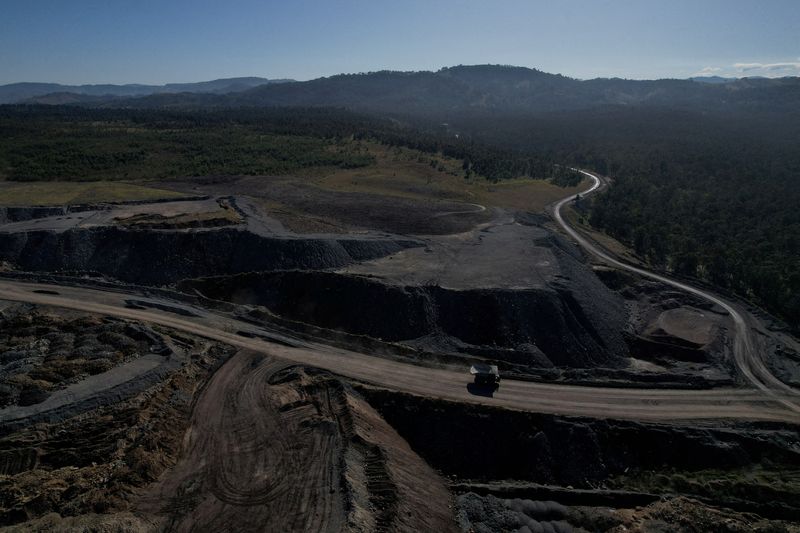(Reuters) -China is resuming coal trade with Australia after a three-year halt following strained relations between the two countries over wider issues.
WHAT HAPPENED BETWEEN CHINA AND AUSTRALIA?
China and Australia's relations had been strained since 2018 when Canberra banned Huawei Technologies from its 5G broadband network.
The relationship deteriorated further in 2020 after Canberra's call for an international inquiry into the origins of COVID-19, triggering a raft of trade reprisals by Beijing on Australian exports.
WHICH PRODUCTS WERE AFFECTED?
Aside from coal, exports of barley, beef, cotton, wine, lobsters and grapes were all hit with restrictions of varying degrees during 2020.
China has however continued buying large volumes of iron ore, wheat and liquefied natural gas.
WHAT DID THE REPRISALS INVOLVE?
China issued verbal instructions to buyers to avoid Australian goods such as coal and cotton, and imposed anti-dumping tariffs on barley and wine.
An October 2020 order to avoid coal from Australia sent prices plunging and left dozens of ships stranded outside Chinese ports. Beijing later said it had found coal imports failed to meet environmental standards.
WHICH PRODUCTS WERE HARDEST HIT?
Anti-dumping and anti-subsidy tariffs on both barley and wine, in place for five years, all but wiped out imports of the products.
The tariffs on barley totalled 80.5% while duties on wine were as much as 218% for some brands.
Wine exports to China, previously Australia's largest market, declined by $844 million in the year to March 2022, the first year after final tariffs were imposed.
The barley trade with the world's biggest beer maker had previously amounted to between A$1.5 billion ($1.01 billion) and A$2 billion a year.
WHAT ABOUT OTHER GOODS?
China also ordered cotton mills to stop buying Australian supplies or face a 40% tariff. China had been the biggest buyer of Australian cotton, taking about 60% of its supplies, worth about A$900 million during the 2018/19 crop year.
Five of Australia's largest beef processors were also suspended from exporting to China in 2020 for reasons such as poor labelling and contamination with a banned substance.
Though other plants are still allowed to ship to China, importers have complained of long delays clearing Australian beef at customs. The trade was worth A$3 billion in 2019.
Lobster exports, meanwhile, fell after China customs said they would be subject to enhanced inspection.
HAS IT IMPACTED AUSTRALIA'S ECONOMY?
Despite the measures, Australia has continued to record a trade surplus with China thanks to rising commodity prices, especially of iron ore.
Australia has also successfully diverted exports of coal, barley and other products elsewhere.
Barley farmers also reduced acreage sown with the grain and planted more canola instead.
Australia's biggest wine company, Treasury Wine Estates (OTC:TSRYF), has shifted its strategy to produce wine in China to rebuild a business that was decimated by the tariffs.
The overall economic impact of the easing of the restrictions, while positive for the affected sectors, is likely to be small, Goldman Sachs (NYSE:GS) said in a Jan. 6 note.
WHO HAS BENEFITED?
Winemakers in South Africa have seen demand boom, while barley exports from France, Canada, Argentina and Ukraine to China also surged.
Cattle farmers from the United States have also benefited, as China sought out an alternative supplier of high quality grain-fed beef.
WHAT SPURRED THE RESUMPTION IN COAL BUYING?
Relations between Beijing and Canberra are thawing after a change in Australia's government, highlighted by a meeting between the countries' foreign ministers in Beijing last month and messages between their two leaders.
Australia is hoping China will also ease other import restrictions. Trade Minister Don Farrell said in late December he was willing to visit China to talk about Beijing's curbs on barley and wine, currently the subject of an Australian complaint to the World Trade Organization.
($1 = 1.4797 Australian dollars)
